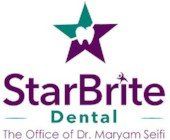You may have heard about the TMJ before, perhaps in a magazine or TV news story. TMJ is an acronym that stands for “temporomandibular joint.” That’s the point, on either side of your head, at which your lower jaw connects with the skull; those points are the hinges that allow your jaw to go up and down. TMJ problems can be a distracting source of pain and require a highly-trained specialist to properly diagnose and treat them. Surgery tends to be used only in severe cases or when the TMJ is somehow damaged. Usually, such treatments as medication and the wearing of dental appliances to prevent nighttime grinding during sleep are all that is required.
Common Causes of TMJ Disorders
TMJ disorders can stem from a variety of everyday habits and health issues. One of the most common causes is bruxism, or teeth grinding—especially during sleep. This puts excessive pressure on the jaw joint and surrounding muscles, often leading to pain and stiffness.
Stress is another significant factor. When you're under emotional or physical stress, you may clench your jaw or grind your teeth without realizing it. Over time, this constant tension can contribute to joint inflammation and muscle fatigue.
Other contributing causes include trauma to the jaw, arthritis in the temporomandibular joint, or even poor posture such as that caused by sitting long hours working at a desk or staring at screens. Misaligned teeth or bite issues can also affect how your jaw functions, potentially leading to joint problems.
Understanding these causes is the first step in identifying effective treatment. At StarBrite Dental, we evaluate each patient individually to determine the root cause of TMJ symptoms and offer personalized treatment options that target your unique condition.
What Patients Are Saying About StarBrite Dental
Frequently Asked Questions About TMJ
If you're experiencing symptoms, schedule a consultation at StarBrite Dental in Rockville, MD to explore your treatment options.
Contact Us to Schedule an Appointment Today!
*We DO NOT ACCEPT HMO Insurance, State Insurance, Medicaid/Medicare, or discount plans. Fees apply for services. and same-day appts/emergencies.
Evening and Weekend Hours Available
- Monday
- Closed
- Tuesday
- -
- Wed, Fri
- -
- Thursday
- -
- Saturday
- -
- Sunday
- Closed
Office
(301) 770-1070
Fax (301) 770-0544
5936 Hubbard Dr, Rockville, MD 20852


